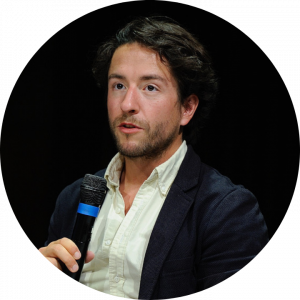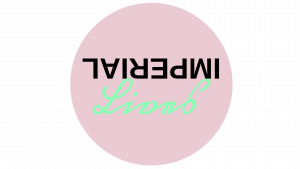Speaker

“Colonial Neighbours. On Curatorial Footnotes and Narratives”
– DAY 2 –
Jonas Tinius, Saarland University
Abstract:
The Colonial Neighbours Archive project was founded as a curatorial footnote to the exhibitions of the contemporary arts space SAVVY Contemporary in Berlin. Considered as a footnote, or, as I argue, an awkward commentary, to the exhibitions that are on show at the art space, it gathers everyday items from the period of German colonialism. It is a participatory and open archive that is entirely constituted by donations, formed around the personal family album on Cameroon by the extended family of its founder Bonaventure Soh Bejeng Ndikung.
Around the archive, SAVVY Contemporary organises exhibitions and conferences and invites researchers and artists to work with it. In 2021, for instance, the artist Henrike Naumann activated the archive by creating an installation called Toxic Cultural Heritage Collection in which visitors can re-arrange objects from the collection in a quotidian interior setting, relating and repositioning objects differently. School classes and university seminars are invited to engage with the archive and share experiences of their education (or lack thereof) about Germany’s colonial past. At its heart, it is a relational and participatory archive, which forces each visitor to relate through their own biographical positionality to the narratives attached to the items, themselves drawn from personal collections in the neighborhood of Berlin-Wedding.
In this presentation, I will also share a module of the recently published Awkward Archives. Ethnographic Drafts for a Modular Curriculum (with Margareta von Oswald, Archive books, 2022), in which its curator, Lynhan Balatbat-Helbock, introduces the archive as a way to think about awkwardness, difficult heritage, and the biographical in collections research.
Bio
Jonas Tinius is a cultural and social anthropologist, whose ethnographic research grapples with the tensions between art, migration, public institutions, and difficult heritage in Europe. He has conducted fieldwork in Germany, France, and Italy on institutionalised forms of cultural production (esp. theatres, museums, cultural centres, libraries, and art spaces), focusing on the reflexive agency of artistic and curatorial work. His research is multimodal and extends into public, instigative, and multimodal fieldwork formats, such as curation, publishing, or public programming. From 2016-2020, he was a postdoctoral research fellow at the Centre for Anthropological Research on Museums and Heritage (CARMAH) in the Department of European Ethnology at the Humboldt-Universität zu Berlin. In 2020, he took up a position as postdoctoral researcher and scientific coordinator of the ERC project Minor Universality. Narrative World Constructions After Western Universality (PI: Prof Markus Messling) at Saarland University.
He is associate member of CARMAH at the Institute of European Ethnology of the Humboldt-Universität zu Berlin, where he completes a habilitation.
See also:
jonastinius.com
@Twitter
@Academia.Edu
(photo: “The Pregnant Oyster – Doubts on Universalism”, Haus der Kulturen der Welt / Paolo Risser)
